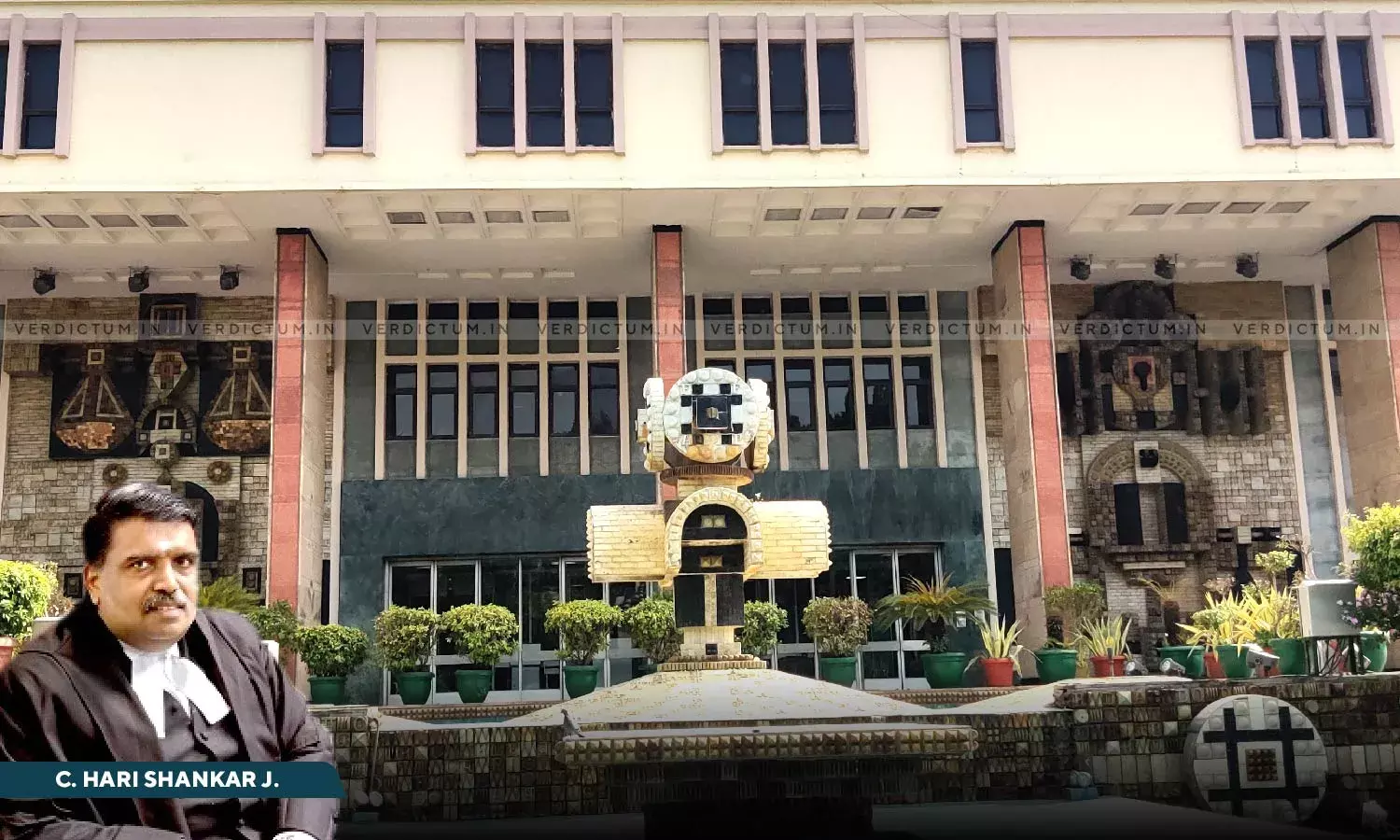"If Initial Interest Generated By Seeing One Trademark Places Consumer In State Of Wonderment, Tort Of Infringement Stands Ipso Facto Committed": Delhi HC
While hearing a matter between two prominent restaurant brands, The Delhi High Court observed that the Defendant, M/s Wow Momo Foods Private Limited, which was using the trademark of Wow! China Bistro, was deceptively similar to the Plaintiff’s trademark of China Bistro. The Plaintiff in this matter is M/s Foodlink F and B Holdings India Private Limited.
Therefore, the High Court injuncted the Defendant from using the trademark ‘Wow! China Bistro’. Nevertheless, the Court permitted the Defendant to use the mark ‘Wow! China’ as there was no interdiction on it.
Regarding the issue of the two trademarks being deceptively similar, a Single Judge Bench of Justice C Hari Shankar observed that “The classical test is whether such a consumer, endowed with average intelligence and imperfect recollection, who chances on the Plaintiff’s mark at one point of time, and on the Defendant’s some-time later, is given to wonder whether he has seen the mark, or a mark associated with it, earlier. What is required, for infringement to be said to exist, is “initial interest confusion”. In other words, if the initial interest generated by seeing the Defendant’s mark places the consumer in a “state of wonderment” as to whether the mark is the same as the one, he had seen earlier, or bears an association therewith, the tort of infringement stands, ipso facto, committed”.
The Bench clarified that where a trademark is registered at a prima facie stage, the Plaintiff was entitled to benefit under Section 31(1) of the Trade Marks Act 1999, and the onus was on the Defendant to prove that the trademark of the Plaintiff lacked validity.
The Plaintiff was represented by Senior Advocate Chander Mohan Lall, whereas the Defendant was represented by Advocate Shuvasish Sen Gupta.
The brief facts of the case were that Plaintiff filed a suit against Defendant, claiming infringement of a registered trademark in class 43, for all kinds of restaurants, bars, snack bars, hotels, cafeterias and canteens. Plaintiff’s mark contained the words China Bistro, whereas Defendant's mark contained the name Wow! China till 2019 and later in 2019, added the word Bistro to its mark.
The Plaintiff alleged that the Defendant’s mark became deceptively similar to the mark of Plaintiff, in the sense that both marks read China Bistro with the Defendant's mark having Wow! as the only differentiating feature. The Plaintiff alleged that the term Wow! could not mitigate the possibility of confusion or deception between the two marks. The thrust of the Plaintiff’s arguments was that a customer of average intelligence and imperfect recollection would not be able to differentiate between the two marks.
After considering the submission, the Bench noted that the words China Bistro of the Plaintiff and Wow! China Bistro of the Defendant constitutes their essential feature.
The Bench went on to observe that a “customer of average intelligence and imperfect recollection comes, one day, across the plaintiff's CHINA BISTRO eatery. A few days later, he chances across the defendant's WOW! CHINA BISTRO outlet. He is not a customer who is aware of the reputation of one mark or the other, for we are dealing, presently, with infringement, not passing off. To my mind, the likelihood of the customer being given to wonder whether the two outlets are not managed by one person, or whether there is no association between the two, is apparent. That, prima facie, satisfies the indicia of infringement, as envisaged by Section 29(2) of the Trade Marks Act”.
For arriving at such observation, the Bench relied on the Supreme Court’s judgments in Kaviraj Pt. Durga Dutt Sharma v. Navratana Pharmaceutical Laboratories and K.R. Krishna Chettiar v Shri Ambal & Co., and reiterated there to be a prima facie case of deceptive similarity as per Section 29(2) of the Trademarks Act 1999, made out by the Plaintiff.
On examination of the issue as to whether the Plaintiff was entitled to claim that the mark of the Defendant was deceptively similar to the mark of the Plaintiff, the Bench noted that disclaiming exclusivity in respect of the individual parts of a mark would not ipso facto result in disclaiming exclusivity over the composite mark as a whole.
Emphasizing that two ordinary words, though completely lacking in distinctiveness when seen individually may, when combined together, be distinctive, the Bench clarified that even if individual parts of a composite mark are by themselves not distinctive, the composite mark, which combines the individual non-distinctive parts together, may partake of distinctiveness.
Therefore, the Bench held that the composite mark China Bistro, was not lacking in distinctiveness, when seen as a whole, and in the absence of any evidence or material to that effect led by the Defendant.
With these observations, the High Court injuncted the Defendant from using the mark Wow! China Bistro as a trademark, label, device, trading style, trade name, logo, keyword, meta tag, domain name or any other manner, which is identical or deceptively similar to the Plaintiff's mark China Bistro. However, the Defendant was left free to use the mark Wow! China.
Cause Title: Foodlink F and B Holdings India Private Limited v. Wow Momo Foods Private Limited [Neutral Citation: 2023: DHC: 5521]
Click here to read/download the Judgment




